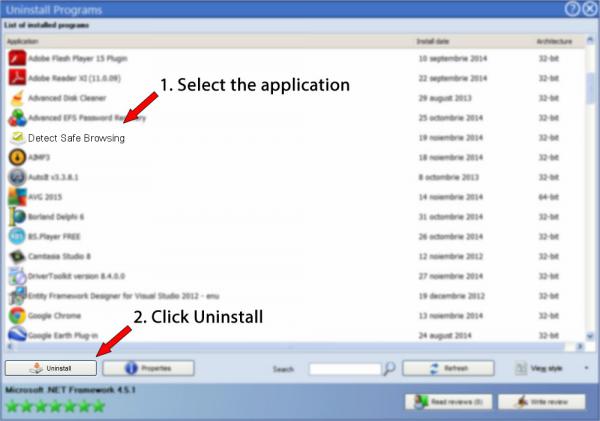
- #Easy solutions detect safe browsing how to#
- #Easy solutions detect safe browsing update#
- #Easy solutions detect safe browsing full#
#Easy solutions detect safe browsing full#
Experts advise running a full antivirus scan at least twice a month. It scans your files and can perform the same scan for emails.
#Easy solutions detect safe browsing update#
Besides using system updates, people need to download and update their device’s antivirus software. This habit of procrastinating security updates leaves several devices susceptible to malware and other viruses. More often than not, users tend to click “Remind me later” instead of activating the updates. System updates include security features or patches that fix vulnerabilities.

Keep your computer, tablet, smartphone, and other devices updated–including your browsers. Awareness and caution should also be applied at home (besides the office), and prioritize taking a break or rest. So be aware that cybercriminals succeed when you’re distracted or unfocused. When online users let down their guard, hackers can use their tiredness or distracted state to send out harmful emails.
#Easy solutions detect safe browsing how to#
Money Girl host Laura Adams explains how to use credit responsibly.Ībout 47% of phishing victims admitted to being distracted during the phishing attempt, according to the Psychology of Human Error report. Should you fill your wallet with credit cards or limit the number you have? It all depends on how you use credit and what makes sense for your financial life. This helps reduce the risk of identity theft and other data breaches that may happen by compromising one of your accounts. When you use fewer cards, you can easily track your spending, payments and account activity.īy being aware of what’s happening with your accounts, it’s easier to pinpoint strange or fraudulent charges. Having only a few credit cards effectively limits your exposure to hackers, scammers, and malicious actors. Below are the tried-and-tested tips online users can follow. Seven Security Tips to Stay Safe Onlineįortunately, there are security measures that individuals can do on their own or with the support of security experts to keep themselves and their families safe online. Their stolen information is often used to break into the institution’s database and steal high-sensitive information like logins and credit card details. People with crucial roles in institutions are the primary targets of these attacks. This fake account is used to impersonate the real user and perform questionable acts, like asking the user’s friends or family for money.

These sinister players steal social media users’ pictures and information to create a pseudo-account.

Some cyber attackers have also leveraged the vulnerabilities of social media platforms and the poor cybersecurity know-how of users. Phishing attacks are common sources of worry because it involves tricking users into doing something as seemingly harmless as clicking a link. Some go to their online platforms, demanding stricter measures and transparency. Nowadays, news about successful cyberattacks or phishing attacks causes people to panic. A few years back, individual users’ main concern was losing their passwords against mischievous hackers. Learning about cybersecurity can be very overwhelming for people because of the increasing sophistication of illegal cyber activities.


 0 kommentar(er)
0 kommentar(er)
